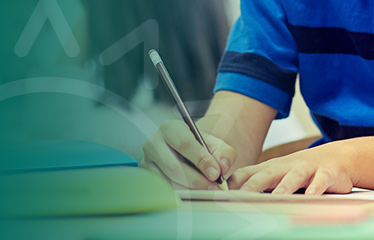Middle Block
In Grades 6, 7, and 8, Middle Block learners develop unique identities and engage with increasingly abstract thought. In general, they have opinions, justifications, and beliefs, and are learning to critique what they observe both in school and in the world around them. They are developing the ability to identify prejudice, stereotyping, or bias in language and media and to recognize the consequent negative effect on individuals and cultures. Depending on their experiences, they can reason, use data, make predictions, and express ideas and attitudes using multiple forms of expression. Middle Block learners have increasing agency and decision-making power over their recreation time and nutritional choices. Their peer group takes on increasing importance. Media and social media have an increasing influence on choices and decision-making. Learners want to feel grown-up and have varying responsibilities that they must balance, some chosen and some imposed on them.
In the Middle Block, learners are:
- finding their way and expressing their identities. They are learning how to stand out while still fitting in.
- able to describe a variety of concepts in an increasingly abstract way.
- communicating with inclusionary language, with intention and awareness of alternate worldviews and perspectives.
- usually proficient in selecting and using technologies with increasing ease to achieve their learning goals.
Middle Block learners need:
- opportunities to read about, represent, view, write about, listen to, and discuss ideas while developing interaction and cooperative skills.
- opportunities to learn within a variety of contexts by making connections relevant to them so that their experiences and knowledge are validated and their willingness to actively participate increases.
- to engage in meaningful practices based on interests, and to connect with relevant local, regional, and world events and cultural knowledge.
- to successfully navigate the unique challenges of adolescence.
Middle Block learners grow:
- by making connections between subject-area concepts and real-life applications, and by contributing to discussions.
- when challenged with abstract ideas of increasing complexity.
- by working with a variety of materials, tools, and contexts when communicating their understandings.
- by exploring and expressing their future identities.


